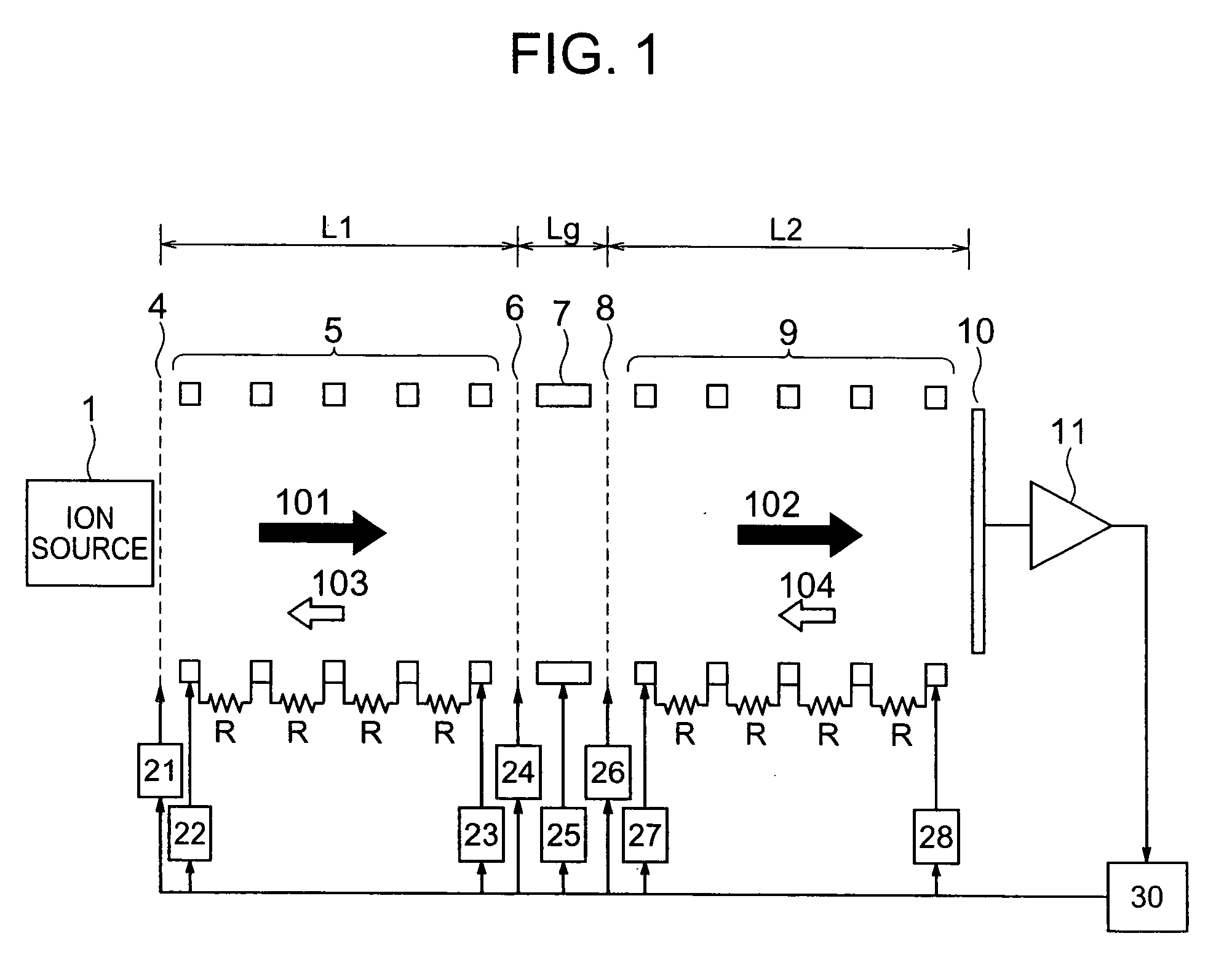Ion-mobility spectrometer and ion-mobility analysis method
- Summary
- Abstract
- Description
- Claims
- Application Information
AI Technical Summary
Benefits of technology
Problems solved by technology
Method used
Image
Examples
first embodiment
[0027]FIG. 1 is a diagram for illustrating configuration example of an atmospheric-pressure ion-mobility spectrometer according to a first embodiment of the present invention.
[0028]FIG. 2 is a diagram for explaining applied voltages to respective electrodes in respective sequences in the apparatus according to the first embodiment.
[0029]FIG. 3 is a diagram for explaining heat dissociation efficiency (calculation value) in the apparatus according to the first embodiment.
[0030]FIG. 4A and FIG. 4B are conceptual diagrams for explaining effects by the apparatus according to the first embodiment.
[0031] Measurement made by the ion-mobility spectrometer according to the first embodiment includes an ion introduction sequence of introducing first ions generated at an ion source 1 into a first drift region (unit), a first drift sequence of separating the first ions by flight drift times at the first drift region, an ion dissociation sequence (hereinafter, referred to as merely “dissociati...
second embodiment
[0048]FIG. 5 is a diagram for illustrating configuration example of an atmospheric-pressure ion-mobility spectrometer according to a second embodiment of the present invention.
[0049]FIG. 6A, FIG. 6B, and FIG. 6C are diagrams for explaining configuration of acceleration electrodes in the apparatus according to the second embodiment, and applied voltages to respective electrodes in respective sequences therein. FIG. 6A and FIG. 6B are the diagrams for illustrating the configuration and lay-out of the acceleration electrodes 305a, 305b, 305c, and 305d of array-configured acceleration electrodes 305. FIG. 6C is the diagram for illustrating the applied voltages to the respective electrodes in the respective sequences (i.e., ion introduction sequence, first drift sequence, ion dissociation sequence, and second drift sequence) in the apparatus according to the second embodiment.
[0050] In the second embodiment, the explanation will be given below concerning the configuration of improving ...
PUM
 Login to View More
Login to View More Abstract
Description
Claims
Application Information
 Login to View More
Login to View More - R&D
- Intellectual Property
- Life Sciences
- Materials
- Tech Scout
- Unparalleled Data Quality
- Higher Quality Content
- 60% Fewer Hallucinations
Browse by: Latest US Patents, China's latest patents, Technical Efficacy Thesaurus, Application Domain, Technology Topic, Popular Technical Reports.
© 2025 PatSnap. All rights reserved.Legal|Privacy policy|Modern Slavery Act Transparency Statement|Sitemap|About US| Contact US: help@patsnap.com



